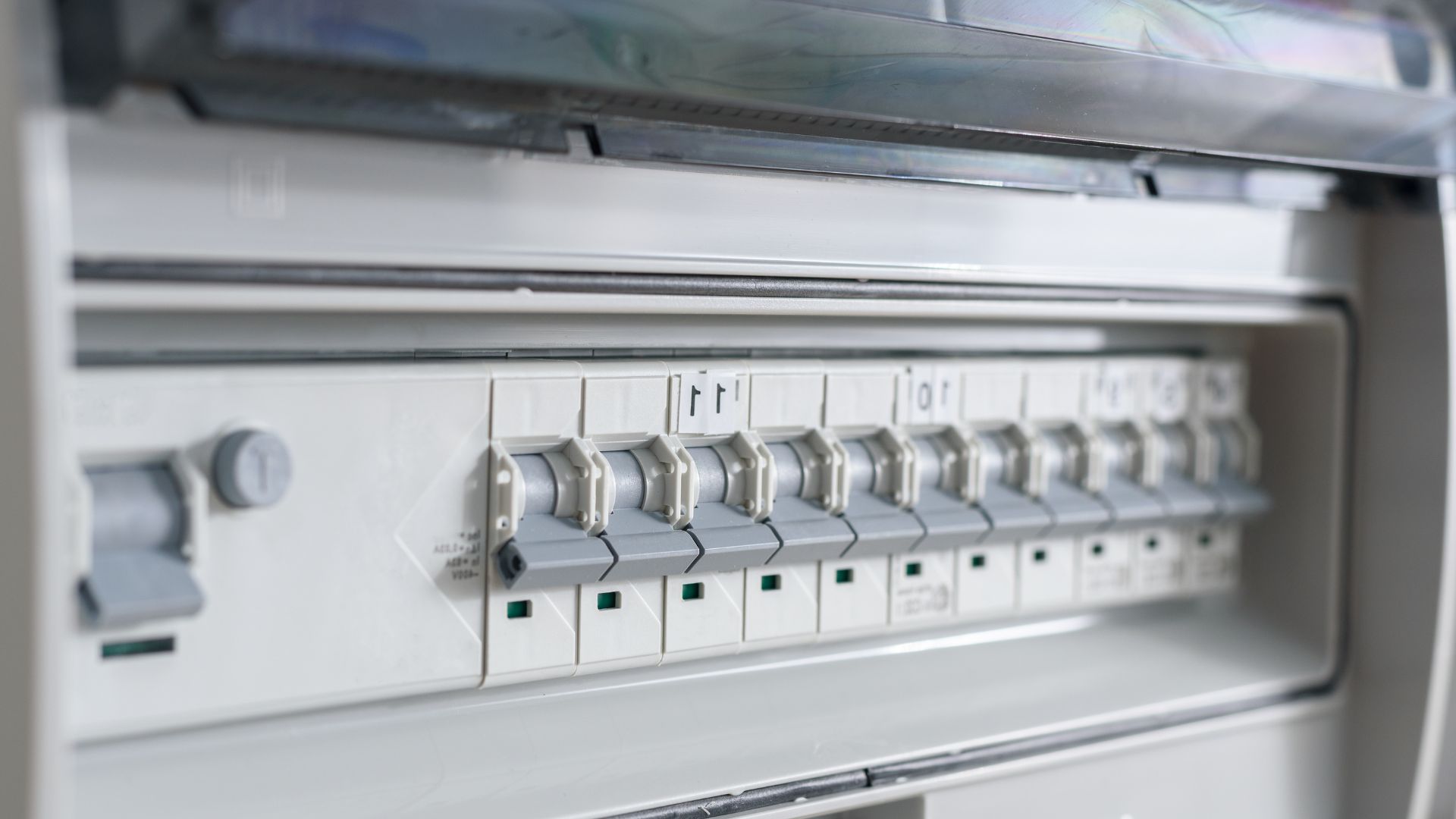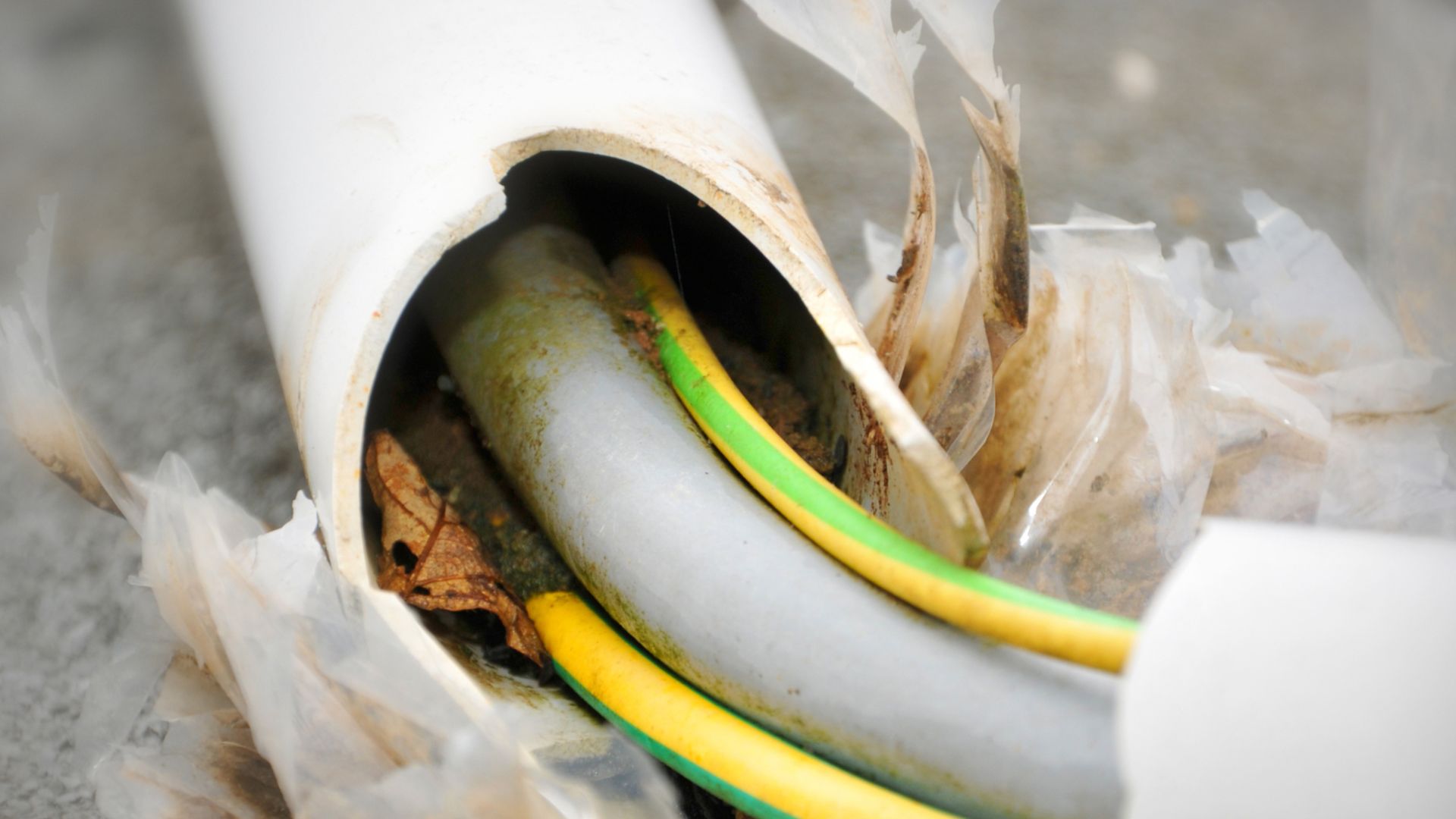Warning Signs of an Electrical Emergency at Home
Electrical emergencies can strike without warning, but certain signs may help you spot trouble early. Learn the common indicators of an impending electrical issue to safeguard your home from potential hazards.
Ever wondered if your home shows signs of electrical danger? Recognising early warning indicators can be the difference between safety and disaster. Flickering lights and strange burning smells are just a few signs that something might be wrong.
Understanding these signs is crucial for your safety and peace of mind. By being aware, you can take action before problems escalate. Don’t wait for a crisis—educate yourself today and protect your home and loved ones.
Flickering or Dimming Lights
Flickering or dimming lights can indicate serious electrical issues, such as overloaded circuits or faulty wiring. Recognising these warning signs can help prevent electrical emergencies and ensure safety.

Causes and Concerns
Flickering lights may signal an overloaded circuit or loose connections in the electrical system. Consistent lighting is crucial, as deviations might suggest an underlying electrical issue.
Electrical equipment and appliances, when used simultaneously, can strain the power supply, causing lights to flicker.
Common Signs and Examples
Lights flicker when electrical appliances like air conditioners or refrigerators start-up, causing power surges. These surges can trip the main circuit breaker, leading to power outages. A burning smell or smoke from electrical outlets is a fire hazard that requires immediate attention from an emergency electrician.
Initial Steps for Investigation
If you notice dimming lights or flickering, check (but don’t touch!) for exposed wires or damaged cords. Ensure that extension cords and power strips are not overloaded to avoid electrical hazards. Loose wiring or faulty electrical components can lead to electrical fires or electric shocks.
Safety Measures and Professional Assistance
To handle electrical problems, conduct regular inspections and maintain electrical installations properly. A licensed electrician can identify faulty wiring or electrical faults. In the event of electrical shocks or fires, call emergency services and local authorities.
Preventing Further Damage
Address damaged and faulty equipment promptly to prevent electrical accidents. Emergency repairs by emergency electricians can resolve electrical issues safely. Avoid potential fires by keeping flammable materials away from electrical outlets and ensuring proper handling of live wires.
Frequent Circuit Breaker Trips
Frequent circuit breaker trips can signal serious electrical issues that need immediate attention to prevent electrical emergencies.

Role of Circuit Breakers
Circuit breakers are crucial components of electrical systems, designed to protect against electrical hazards by interrupting power supply during faults. When an electrical circuit is overloaded, or a fault occurs, the breaker trips to prevent electrical fires and electric shocks.
Common Causes
Overloaded circuits, faulty electrical appliances, and damaged wires are common causes of frequent trips. These issues can lead to electrical faults, short circuits, and power outages. If you notice burning smells or exposed wires, it might indicate a severe electrical problem.
When to Reset and When to Call a Professional
If a circuit breaker trips, you can reset it once. However, if it trips again, it might indicate an underlying electrical issue that needs professional assessment. To prevent electric shock, avoid handling electrical problems yourself. Instead, call an emergency electrician.
A licensed electrician can safely inspect electrical wiring and equipment, ensuring necessary repairs are handled properly. They can also identify faulty components and perform regular maintenance to prevent electrical emergencies.
Safety Measures
To ensure safety, avoid overloading electrical circuits and using damaged electrical equipment. Keep electrical appliances away from surrounding materials that can catch fire. In case of power outages or fallen power lines, contact emergency services immediately.
By understanding the role of circuit breakers and recognising warning signs, you can take proactive steps to prevent electrical hazards and maintain a safe power source.
Burning Smell or Scorch Marks
The presence of a burning smell or scorch marks around outlets and switches is a serious indicator of potential electrical emergencies.
Dangers and Causes
Burning odours or scorch marks are often signs of overheating wires or faulty installations within the electrical system. These issues can quickly escalate into electrical fires, posing significant electrical hazards.
Overheating can occur when electrical equipment is improperly installed or when wires are damaged. Such conditions can lead to electrical faults and increase the risk of electric shock.
Immediate Actions
Upon detecting a burning smell, immediately turn off the main power supply to the affected area. This step helps prevent an electrical fire and reduces the risk of electric shock. Do not attempt to use the outlet or switch until a professional electrician has inspected it.
Seeking Professional Help
It is crucial to contact a professional electrician to assess the situation. They can identify the root cause of the problem and perform necessary repairs to ensure the safety of your electrical systems. Ignoring these warning signs can lead to severe consequences, including power outages and further damage to electrical equipment.
Preventive Measures
To avoid such electrical emergencies, ensure regular maintenance of your electrical system. A professional electrician can perform inspections to identify potential risks, such as faulty installations or damaged wiring. Be cautious with electrical equipment, and ensure it is used correctly to prevent overheating.
In case of fallen power lines or any electrical fault that poses an immediate risk, contact emergency services.
By taking these steps, you can protect your home from the dangers of electricity and maintain a safe environment.
Unusual Noises from Electrical Systems
Buzzing, crackling, or popping sounds from electrical systems can signal potential electrical emergencies.
Causes of Unusual Noises
These noises often indicate loose connections or faulty components within the system. Such issues can lead to electrical hazards and increase the risk of electrical shocks. Loose wiring might cause intermittent connections, producing buzzing sounds, while faulty components can create crackling or popping noises.
Importance of Prompt Action
Addressing these noises promptly is crucial to prevent further damage or danger. Ignoring them can escalate the problem, potentially leading to an electrical fire or power outage. Immediate attention can prevent an electrical emergency and ensure safety.
Safety Measures
If you hear unusual sounds, avoid touching the affected area to prevent electric shock. Immediately contact a professional to assess and repair the issue. You can mitigate risks and maintain a safe environment by taking swift action.
Warm or Sparking Outlets
Warm or sparking outlets are serious indicators of potential electrical hazards, including fire risks.

Risks and Causes
Sparking or warm outlets can lead to electrical fires, posing significant dangers. Common causes include overloading the outlet with too many devices or damaged wiring that increases resistance and heat. These issues can escalate into an electrical emergency if not addressed promptly.
Safety Tips
- Unplug Devices: Immediately unplug all devices from the affected outlet to prevent further risk.
- Do Not Use: Avoid using the outlet until it has been inspected and repaired by a professional.
- Professional Assessment: Contact a licensed electrician to evaluate and fix the problem. They can identify underlying issues, such as faulty wiring or overloaded circuits, and perform necessary repairs.
Emphasising the need for professional intervention ensures safety and helps prevent electrical emergencies and potential fire hazards.
Outdated or Damaged Wiring
Outdated or damaged wiring poses significant risks, including increased fire hazards and inefficiency in your electrical system.

Risks and Signs of Wear
Old wiring can lead to electrical fires due to degraded insulation and increased resistance. Signs of wear include frayed wires, rust, or discoloured outlets. These issues can compromise the safety and efficiency of your electrical system, potentially leading to frequent power outages or electrical shocks.
Importance of Regular Inspections
Regular inspections by a licensed electrician are crucial to identifying and addressing these risks. Updating wiring ensures your home’s electrical safety, preventing potential hazards. Make sure to replace outdated systems and repair damaged components to maintain a safe and efficient home environment.
Power Outages in Specific Areas
Localised power outages often signal problems with wiring or circuits within your home.
Local vs. Broader Outages
While broader power failures usually result from external issues, such as fallen power lines, outages limited to specific areas typically indicate problems with the home’s electrical system. These can result from faulty wiring, overloaded circuits, or tripped breakers.
Troubleshooting Tips
- Check Circuit Breaker: Inspect the circuit breaker for any tripped switches and reset them if necessary.
- Inspect Outlets: Look for signs of damage or overheating at outlets and switches.
- Reduce Load: Unplug unnecessary devices to reduce circuit load.
When to Seek Professional Help
If the issue persists after basic troubleshooting, or if you notice burning smells or sparking, contact a licensed electrician. A professional assessment is essential to identify and repair underlying issues, ensuring electrical safety and preventing potential hazards.
Overloaded Outlets and Power Strips
Overloading outlets and power strips pose serious risks, including electrical fires.
Dangers and Signs
When outlets or power strips are overloaded, they can overheat, leading to potential fire hazards. Signs of trouble include a hot outlet plate, frequent tripping of circuit breakers or power strips, and buzzing sounds.
Safe Usage Practices
- Distribute Load: Avoid plugging too many devices into a single outlet or power strip. Spread devices across multiple outlets to balance the load.
- Unplug Unused Devices: Disconnect devices that aren’t in use to reduce strain on the electrical system.
- Use Quality Power Strips: Choose power strips with built-in surge protection to minimise risks.
Stay Safe and Secure with Professional Help
Recognising and addressing signs of electrical emergencies promptly is crucial for maintaining safety in your home. Ignoring warning signs like flickering lights, burning smells, or frequent power outages can lead to serious hazards, including electrical fires and shocks. Prioritise safety by consulting professionals for inspections and repairs.
Sydney Level 2 Electricians offer the expertise needed to handle complex electrical issues. Their specialised knowledge ensures that emergency problems are diagnosed accurately and resolved safely. Whether it’s upgrading outdated wiring or addressing power surges, their skills provide peace of mind and reliable solutions.
For any electrical concerns, don’t hesitate to contact our team for emergency services. We’re committed to ensuring your home remains safe and secure, offering professional assistance whenever you need it. Trust our experts to deliver effective and lasting solutions, so you can enjoy the comfort and safety of your home without worry.